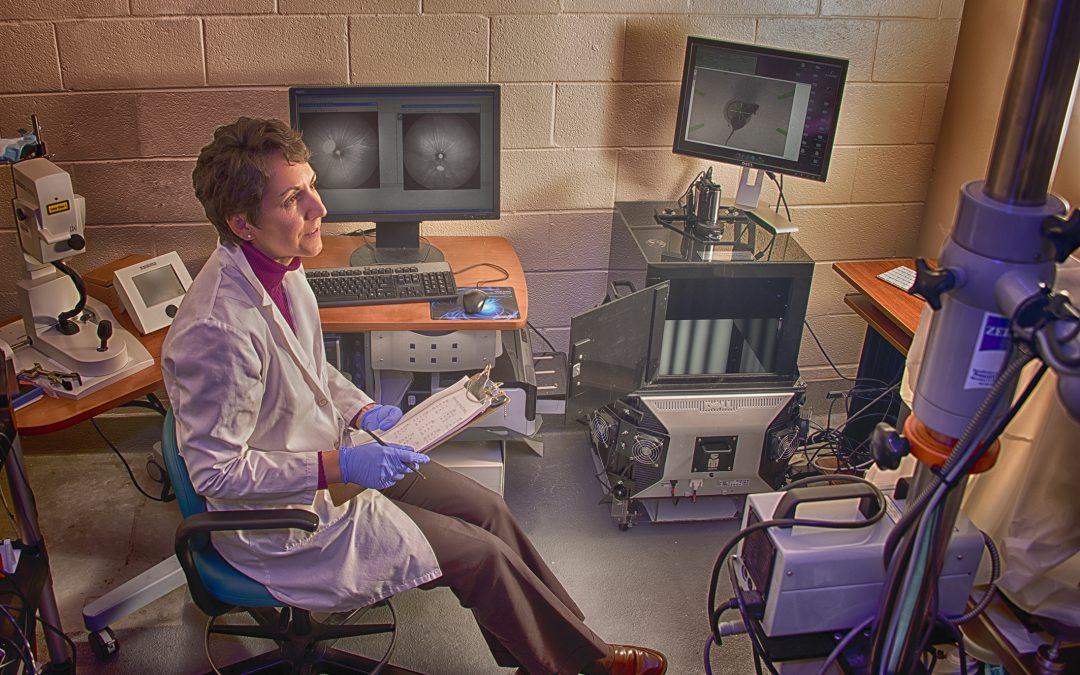Blinding retinal diseases such as diabetic retinopathy, age-related macular degeneration and glaucoma affect over 10 million people in the United States. Unfortunately, there are no cures for these conditions. When patients are diagnosed with a retinal disease, they are often told that nothing can be done but monitor their vision loss and hope that cures that are moving along the research pipeline will soon become available.
Dr. Machelle Pardue’s lab at the Atlanta VA Medical Center is working to change this scenario. She is studying different neuroprotective approaches for retinal diseases that patients could start when they are first diagnosed. These neuroprotective therapies could slow the progression of the disease and potentially prevent vision loss and late-stage blindness.
For example, Dr. Pardue is developing new screening and treatment strategies for diabetic retinopathy. Currently, to detect retinal disease associated with diabetes, clinicians look for structural changes in the blood vessels by comparing yearly photographs of the back of the eye. However, these structural changes appear only in mid-to-late stages of the disease after retinal neurons have stopped working properly and vision loss has already occurred. Thus, Dr. Pardue, in collaboration with Dr. Peter Thule, has carefully examined diabetic animal models for functional changes in the visual system as diabetes progresses. She has identified a delayed response to light flashes with early disease that can be identified with a handheld screening device.
Earlier detection of retinopathy provides an opportunity to start the neuroprotective treatments to slow the progression of disease before vision loss occurs. In diabetic animal models, Dr. Pardue discovered that dopamine treatments slow the progression of disease when started early. Based on these findings, she is testing the handheld screening device and levodopa in a small clinical trial at the Atlanta VA to determine if the results can be repeated in patients with diabetes. Levodopa is an FDA approved drug used to treat Parkinson’s disease and thus could be translated to the clinic rapidly.
Another neuroprotective strategy with the potential to benefit many people with retinal diseases is physical exercise. Dr. Pardue, in collaboration with Dr. Jeffrey Boatright, has found that physical exercise has a direct benefit to the eye. In animal models of retinal degeneration and diabetic retinopathy, moderate levels of exercise (similar to walking for humans) protected the retina and slowed vision loss. She is currently testing the benefits of exercise in humans in a clinical trial at the Atlanta VA.
The ultimate goal of Dr. Pardue’s research is to prevent vision loss through early detection and treatment of retinal disease. Through VA funding and support, Dr. Pardue has been able to develop new screening approaches and test several neuroprotective strategies. The VA has created an environment that fully supports moving these findings from the lab towards the clinic where veterans and others can benefit.
